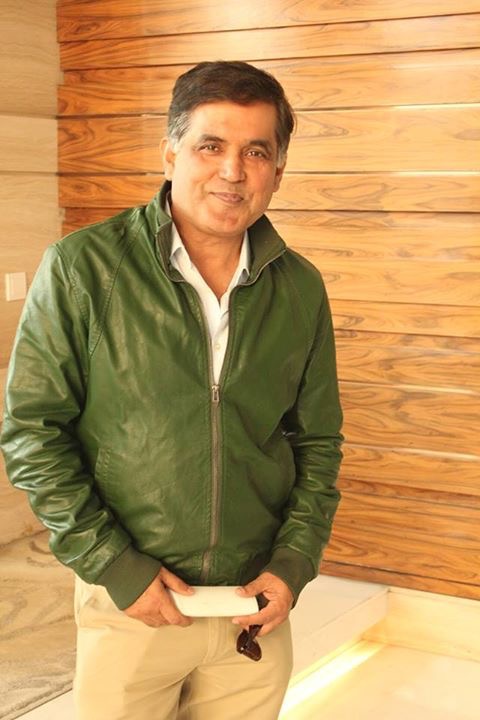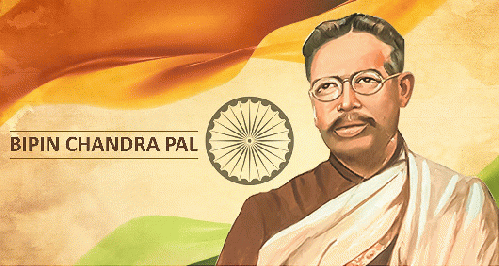(This is a reprint from NewsBred)
The popular history has Indian National Congress-Mahatma Gandhi-Ahimsa-Independence as a sequential thread embedded in the mind of free Indians. The disruptive truth of 1905-1920 is hardly in circulation; the parallel flow of revolutionaries beginning with Lal-Bal-Pal and extending till Subhas Chandra Bose are like distant relatives we haven't been keeping in touch with.
Between 1905-1920,
The years 1905-1920 are not just about
Congress in modern
The birth anniversary of Bipin Chandra Pal (November 7, 1858) affords us an occasion to view these times through the prism of this man who for his magnificent oratory was called the "Burke of India" and whom Sri Aurobindo was apt to refer as one of the "Mightiest Prophets of Nationalism ." His wealthy background in his birthplace Sylhet (now in Bangladesh); the remarkable pen he wielded as an editor and author; and his commitment for improving the lot of women--Pal married widows twice--pale in significance to his role in India's freedom struggle, beginning 1905.
This catalyst of a year was when Bengal was
partitioned between commercially rich but largely Hindu West Bengal and
economically weak and largely Muslim East
"
Pal, along with Lalaji and Tilak, was
instrumental in ensuring ruling British didn't meet with their objective and
were forced to reunite
The fervour of this national response evoked anxiety and not a little envy from the Moderates who still controlled the Congress and who had believed all along in the philosophy of "prayers, petitions and protests." Most of the Moderates were on good terms with the high-ranking British officials in 1905 and had also held cushioned jobs.
Six months after the Bengal Partition, The
Congress session was held in Banares in December 1905. The division between
Moderates and Extremists was out in the open. The Extremists wanted the visit
of Prince of Wales to be boycotted in protest to the Partition; the Moderates
opposed this move. Moderates invited one of staunchest in its ranks, Dadabhai
Naoroji, a founder of Congress, a former MP in British Parliament and then
living in
The Surat Session in 1907 was a monumental
moment for Congress and
British unleashed a brutal crackdown on the
Extremists. Their newspaper was closed; Tilak was banished to Mandalay Jail for
six years; Pal was arrested for not giving evidence against Sri Aurobindo and
compelled to opt out to
Pal returned to Congress in 1916 but by then the stage was set for the advent of Mahatma Gandhi on another moderate Gopalkrishna Gokhale's invitation. Gandhi's subsequent movement of non-cooperation, as an allied action to Khilafat Movement, was seen as fanning the Pan-Islamism, and introducing the religious element in India's politics by the likes of Pal. Khilafat Movement, to the uninitiated, was launched by Muslims in support of restoration of Ottoman Sultan in faraway Turkey, fully backed by Gandhi and Congress in a bid to promote Hindu-Muslim Unity.
The envisioned unity was a pipe-dream and
start of Muslim appeasements by Gandhi-led Congress. It fanned the ambition of
Mohammad Ali Jinnah for a separate Muslim state. The resultant Partition and
rivers of blood which flowed in its wake still carries scars and repercussions
for
Pal turned his back on Congress but not before he made a scathing attack on Gandhi in the 1921 session. "You wanted magic. I tried to give you logic. But logic is in bad odor when the popular mind is excited. You wanted mantaram, I am not a Rishi and cannot give mantaram"I have never spoken a half-truth when I know the truth"I have never tried to lead people in faith blind-folded." He was critical of Gandhi for his "priestly, pontificating tendencies." Comparing Gandhi with Leo Tolstoy, Pal noted that Tolstoy "was an honest philosophical anarchist," while Gandhi to him was a "papal autocrat." (4)
Pal, who kept out of public life between 1921-1932, died in a state of penury.






